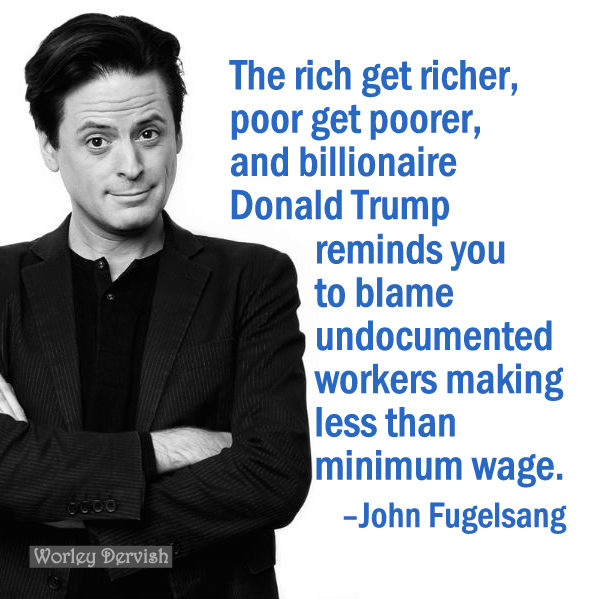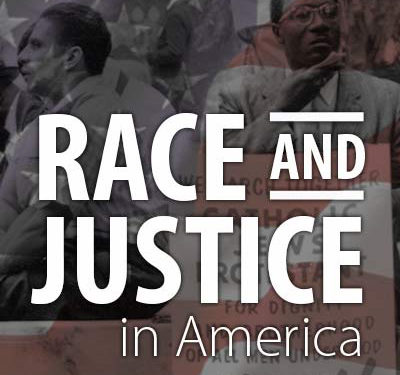Race is a big issue in America. I apologize for the understatement, but it seems that minimally weekly we are reading of a questionable police shooting of a Person Of Color, often times unarmed. Blacks feel as if they are being targeted, Hispanics as well, especially on the issue of immigration status for either themselves or possibly relatives. Muslims feel persecuted. Whites feel as if all of the affirmative attention directed toward minorities has somehow unfairly affected their equal opportunities.
The campaigning and news surrounding the 2016 presidential election have often focused on race and other issues that concern and divide the various demographics. Social media provided platforms such as Twitter have further galvanized groups that feel underrepresented in pursuits of justice and equality.
While giving a voice to those that feel wronged, social media also allows for vocal dismissal of any and every opinion. You feel the police are unfair to minorities? There are at least an equal amount of trolling dissenters who are all to happy to victim blame and support the police regardless of any evidence presented.
Race is indeed an important topic that needs to be addressed. In fact, while some may be sick and tired of the topic, I argue that it needs to be discussed even more. Intelligent, calm communicative discourse is needed from all sides to help in furthering understandings and empathy for cultural and religious differences of others within this country who may not look like the people you normally associate with.
However, as important as all the discussion regarding race is, and must continue, it does distract from what I feel is the REAL issue in the United States: Income And Wealth Inequality.
I am one that generally feels that all numbers and statistics can be skewered, to a degree, to whatever point you are trying to make. However the numbers regarding the inequality of both income and wealth in the United States are so staggering that they need to be re-broadcast.
The US ranks in the 30th percentile in income inequality globally, meaning 70% of countries in the world have more equal income distribution than the US. [1] The top 1% of income earners in the US received approximately 20% of the total pre-tax income earned by everyone in the US in 2013 [2]
As of 2011, the top 1% of income earners in the US is determined by people who made at least $388,900 according to IRS data.[3] By comparison, the top 0.1% of the 1% received 10%percent of the total income received and their average income (not taking capital gains into account) was approximately $3,500,000.00. Half (50%) of the US lives in poverty or is low income according to US Census data. [4]Let’s put this in some perspective. The US population (as of 2014) was approximately 319 million people. That means that nearly 160 Americans live in poverty or are considered low income. Statistically, 1% of the population of 319 million people is approximately 3.2 million people. 0.1% of that 1% is only approximately 319,000 people.
The numbers are equally if not more telling when you look at the inequality in the distribution of wealth in the United States. Wealth is essentially a calculation of the value of your assets (including cash) minus your debts.
The top 1% owned approximately 40% of the entire calculated wealth accumulated in the United States in 2012 versus 23% in 1978. The top 0.1% (remember only approximately 319,000 people of a country of 319 million) of the 1% owned approximately 22% of all of America’s accumulated wealth in 2012 versus 7% in 1978. [5]
The top 400 Americans had a net worth of $2 Trillion Dollars in 2013 which was more than the combined net worth of the bottom 50% of all US households. The average net worth for the top 400 was approximately $5 Billion Dollars, while the average net worth for the bottom 50% of US households was approximately $11,000.00. [6]
The disparity of these numbers are truly staggering and show that the trend is growing for further inequality not improvement. I am all for capitalism, but these numbers show greed and inequality on steroids. To make matters worse, the tax breaks, incentives and subsidies that are afforded to the rich make it a form of welfare to those in need the least.
How are tax breaks and subsidies to the rich a form of welfare? How are they not? The old broken premise that companies and rich need these incentives to keep jobs in America and stimulating the economy is the oldest and best con job in existence. The only real trickle down you see is to their own bank accounts and bottom lines.
This is the great con. This is the great diversion that is American politics. Keep the masses looking at everything else as the reasons for their plight instead of the inner working of the establishment to maintain the status quo.
If you have lost your job in America, blame the immigrants and affirmative action. Crime is a problem, (which of course it is), blame it on People of Color or guns or everything else which all may be contributing factors to the problem, but they are not the source.
Income and wealth inequality are not the source of all of America’s problem, but when you have half of all US households living in poverty you have to at least acknowledge that that is a monumental problem that needs to be addressed. Instead the politicians (excepting Bernie Sanders attempts) perform a slight of hand in never having you look at the real problem that affects the majority of us in the US no matter your race, religion or color.
#bernie #race #raceinamerica #wealth #wealthinamerica #wealthinequality #incomeinequality #inequality #election2016
[1] The World Factbook cia.gov
[2] Emmanuel Saez –berkely.edu
[3] Emmanuel Saez-Income & Wealth Inequality:Evidence & Policy Implications-October 2011 & Joseph E.Stiglitz May 2011 Vanity Fair “Of the 1% By the 1% For the 1%”
[4] Yen,Hope (December 15, 2011) US Poverty : Census finds nearly half of American are either Poor or Low Income-Huffington Post
[5] Jeanne Sahadi (April 4, 2014) The Top 1% and what they pay-CNN Money
[6] FRB: Speech with Slideshow-Yellen, Perspectives on Inequality and Opportunity from the Survey of Consumer Finances- federalreserve.gov October 17, 2014



